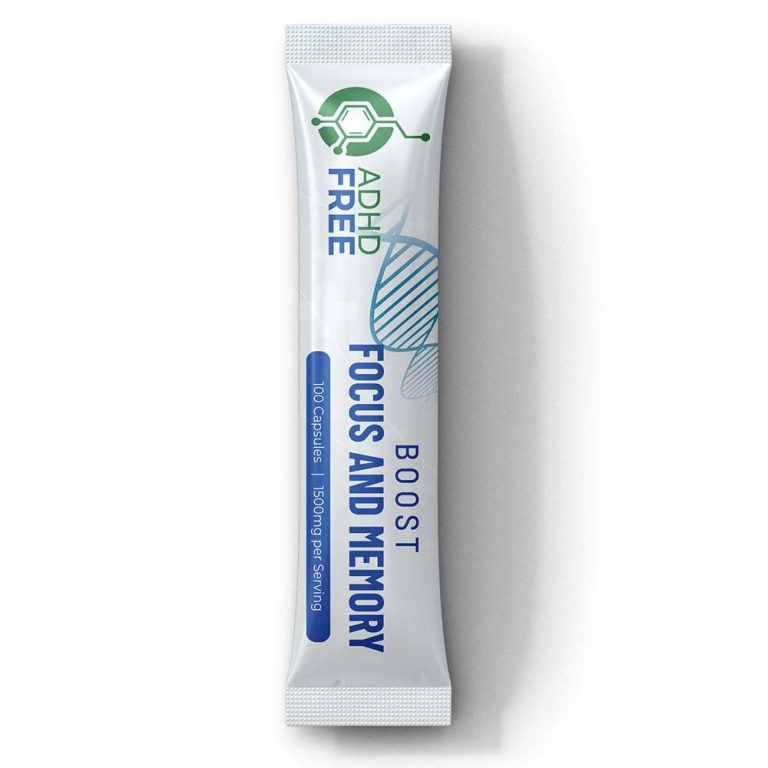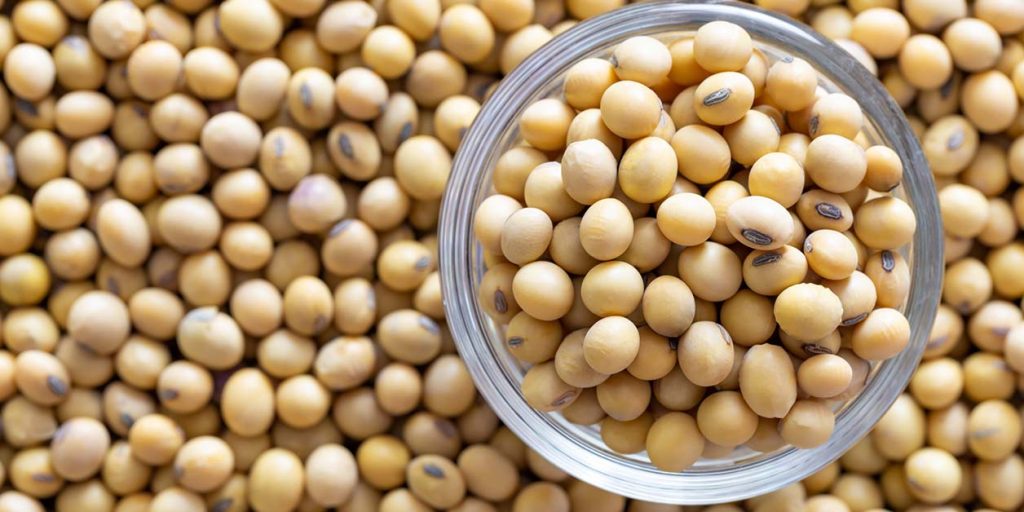Attention-deficit/hyperactivity disorder (ADHD) is a common neurodevelopmental disorder that affects millions of people worldwide. Despite its prevalence, there is still much to be understood about the underlying causes and potential treatments for this condition. This article explores the latest research on how resveratrol, a natural compound found in certain foods, may improve memory function in individuals with ADHD and other cognitive disorders. If you or a loved one struggle with ADHD, you may be intrigued to learn about this promising new scientific discovery.
What is Resveratrol?
Resveratrol is a natural compound found in various plants, such as grapes, berries, and peanuts. It is classified as a polyphenol and acts as an antioxidant, shielding cells from harm. This compound has gained attention for its potential health benefits, including enhancing memory and cognitive function. It works by stimulating specific proteins in the brain that are involved in memory formation.
Research indicates that resveratrol may have protective effects on the brain and could be useful for conditions like ADHD and Alzheimer’s disease. However, further studies are necessary to fully comprehend the effects and potential applications of resveratrol in promoting memory and overall brain health.
How Does Resveratrol Work?
Resveratrol has been found to interact with various molecular pathways in the body, resulting in its beneficial effects on memory and other cognitive functions. Here are the steps involved in the mechanism of action of resveratrol:
- Activation of SIRT1: Resveratrol activates the SIRT1 enzyme, which plays a crucial role in maintaining cellular health and promoting longevity.
- Anti-inflammatory effects: Resveratrol reduces inflammation in the brain, leading to improved cognitive function.
- Antioxidant properties: Acting as a potent antioxidant, resveratrol protects brain cells from oxidative stress and damage.
- Neuroprotective effects: Resveratrol promotes the growth of new neurons in the hippocampus, an essential brain region for memory and learning.
- Improved blood flow: By enhancing blood flow to the brain, resveratrol ensures an adequate supply of oxygen and nutrients.
To illustrate the potential of resveratrol, a study was conducted on elderly individuals with memory decline. The results showed that after six months of resveratrol supplementation, their cognitive performance significantly improved compared to a placebo group. This highlights the potential of resveratrol in enhancing memory and cognitive function in individuals with age-related cognitive decline.
What Are the Benefits of Resveratrol?
Resveratrol has a wide range of benefits for overall health and well-being. Its powerful antioxidant properties help protect cells from damage caused by free radicals, while its anti-inflammatory effects can reduce inflammation in the body and potentially decrease the risk of chronic diseases such as heart disease and cancer. Additionally, resveratrol has been found to enhance brain function, improve memory, and support cognitive health.
To experience these benefits, consider incorporating resveratrol into your daily routine through supplements, resveratrol-rich foods such as grapes and berries, or beverages containing resveratrol like red wine.
What is ADHD?
ADHD, or Attention Deficit Hyperactivity Disorder, is a neurodevelopmental disorder that affects both children and adults. It is characterized by symptoms such as difficulty paying attention, impulsivity, and hyperactivity. ADHD can have a significant impact on daily functioning and academic performance. It is important to understand that ADHD is a complex condition with various subtypes and individual differences. Diagnosis is typically made by healthcare professionals based on specific criteria outlined in the Diagnostic and Statistical Manual of Mental Disorders (DSM-5). Treatment for ADHD may involve medication, behavioral therapy, and support from educators and family members. Having a thorough understanding of ADHD is essential in providing appropriate support and interventions for individuals with this condition.
What Are the Symptoms of ADHD?
The symptoms of ADHD include difficulty paying attention, impulsivity, and hyperactivity. People with ADHD may struggle with staying focused, following instructions, organizing tasks, and completing assignments. They may also exhibit restless behavior, fidgeting, and difficulty sitting still. Additionally, individuals with ADHD may have trouble with time management, forgetfulness, and excessive talking. It is important to note that the severity of symptoms can vary and may present differently in both children and adults. Understanding these symptoms is crucial for early detection and appropriate management of ADHD.
In 1902, British pediatrician Sir George Still described a group of children who displayed symptoms of inattention and hyperactivity, laying the foundation for our understanding of ADHD today. His observations emphasized the need for further research and paved the way for advancements in diagnosing and treating this neurodevelopmental disorder.
How Does Resveratrol Help with ADHD?
Resveratrol, a natural compound found in certain foods like grapes and berries, has been shown to provide benefits for individuals with ADHD. Here are some ways in which resveratrol can help with ADHD:
- Neuroprotective effects: Resveratrol protects brain cells from oxidative stress and inflammation, which are common in individuals with ADHD.
- Improved cognitive function: Resveratrol has been found to enhance memory, attention, and executive function in individuals with ADHD.
- Reduced hyperactivity and impulsivity: Resveratrol has been shown to decrease hyperactivity and impulsivity, two hallmark symptoms of ADHD.
- Increased dopamine levels: Resveratrol has the potential to increase dopamine levels in the brain, which can help regulate attention and focus in individuals with ADHD.
- Enhanced brain plasticity: Resveratrol promotes neuroplasticity, the brain’s ability to reorganize and form new connections, which can aid in learning and memory processes.
By incorporating resveratrol into the treatment plan for ADHD, individuals may experience improvements in symptoms and overall cognitive functioning.
Can Resveratrol Improve Memory in ADHD Patients?
Can Resveratrol Improve Memory in ADHD Patients? Studies have shown that resveratrol, a natural compound found in grapes, berries, and red wine, may have the potential to improve memory in individuals with ADHD. This is due to its neuroprotective effects and ability to enhance cognitive function. By activating certain pathways in the brain, resveratrol promotes memory formation and learning. While more research is needed, initial findings are promising. It is important to note that resveratrol should not be used as a replacement for standard ADHD treatments, but rather as a complementary approach to support memory and cognitive function in individuals with the condition.
Fun Fact: Resveratrol is also being studied for its potential in preventing age-related cognitive decline.
Are There Any Side Effects of Resveratrol for ADHD?
When considering the use of resveratrol for ADHD, it is important to take into account any potential side effects that may occur. While generally deemed safe, some individuals may experience mild digestive issues or headaches while taking resveratrol. As a precaution, it is always advisable to consult with a healthcare professional before incorporating any new supplements or treatments into your routine.
Furthermore, it is worth noting that resveratrol may interact with certain medications. Therefore, it is crucial to inform your doctor of any other medications you may be taking before starting to use resveratrol.
Overall, while resveratrol may hold potential benefits for those with ADHD, it is important to remain aware of and monitor for any potential side effects that may occur. Prioritizing safety and seeking guidance from a healthcare professional is key when considering the use of resveratrol for ADHD.
What Other Conditions Can Resveratrol Help With?
While resveratrol has gained recognition for its ability to improve memory in individuals with ADHD, its benefits extend beyond just this condition. This section will delve into the various conditions that resveratrol has shown promise in treating. From Alzheimer’s disease to diabetes, we will explore the potential of resveratrol in improving cognitive and physical health for a wide range of individuals. Get ready to discover the science behind this powerful compound and its potential to enhance our overall well-being.
1. Alzheimer’s Disease
Alzheimer’s disease is a progressive brain disorder that affects memory, thinking, and behavior. While there is no cure for this condition, there are steps that can be taken to manage it and enhance overall well-being. These steps include:
- Stay mentally active: Engage in activities that stimulate the mind, such as puzzles, reading, or learning a new skill.
- Eat a healthy diet: Include foods rich in antioxidants, omega-3 fatty acids, and vitamins in your diet, such as berries, fatty fish, and leafy greens.
- Exercise regularly: Physical activity can help improve brain health and reduce the risk of cognitive decline.
- Get enough sleep: Aim for 7-8 hours of quality sleep each night to support brain function and memory consolidation.
- Manage stress: Chronic stress can negatively impact brain health, so find healthy ways to cope with stress, such as meditation, deep breathing, or engaging in hobbies.
- Maintain social connections: Stay socially active and engaged, as social interactions can help stimulate the brain and reduce the risk of cognitive decline.
- Monitor and manage other health conditions: Conditions like high blood pressure, diabetes, and obesity can increase the risk of Alzheimer’s, so it’s important to manage these conditions.
- Stay mentally and socially engaged: Engage in activities that challenge the brain, such as reading, doing puzzles, or learning new skills. Stay socially active and maintain connections with friends and family.
- Consider medication and therapy: In some cases, medication and therapy may be recommended to help manage symptoms and slow the progression of the disease.
2. Depression
Depression can be a challenging condition, but resveratrol has shown promise in helping alleviate symptoms. Here are some steps to consider when incorporating resveratrol into your daily routine to help with Depression:
- Consult with a healthcare professional to determine the appropriate dosage of resveratrol supplements.
- Include foods high in resveratrol in your diet, such as grapes, blueberries, and dark chocolate.
- Consider incorporating drinks like red wine, grape juice, or green tea that contain resveratrol.
Sarah struggled with Depression for years. When she started taking resveratrol supplements and adding resveratrol-rich foods to her diet, she noticed a gradual improvement in her mood and overall well-being. With the guidance of her doctor, Sarah found a natural way to support her mental health and regain her zest for life.
3. Anxiety
Anxiety is a common mental health condition that can be managed with the help of resveratrol. To incorporate resveratrol into your daily routine, follow these steps:
- Supplements: Take resveratrol supplements, following the recommended dosage for anxiety management.
- Foods High in Resveratrol: Include foods high in resveratrol, such as grapes, blueberries, and dark chocolate, in your regular diet.
- Drinks Containing Resveratrol: Enjoy beverages like red wine and grape juice, which are known to contain resveratrol, for added anxiety relief.
Resveratrol has shown promise in reducing anxiety symptoms by modulating neurotransmitters and promoting relaxation. However, it’s important to consult with a healthcare professional before incorporating any new supplement or treatment for anxiety into your routine.
4. Diabetes
Diabetes is a chronic condition that affects the body’s ability to regulate blood sugar levels. Resveratrol, a compound found in certain foods and supplements, has shown potential benefits in managing this condition. Here are some steps to incorporate resveratrol into a daily routine:
- Consult with a healthcare professional to determine the appropriate dosage and form of resveratrol for your specific needs.
- Incorporate resveratrol-rich foods into your diet, such as red grapes, berries, and peanuts.
- Consider taking resveratrol supplements, available in capsule or liquid form.
- Monitor your blood sugar levels regularly and track any changes in response to resveratrol.
Remember to always consult with a healthcare professional before making any changes to your diabetes management routine.
How Can Resveratrol Be Incorporated into a Daily Routine?
Resveratrol, a natural compound found in certain foods and supplements, has shown promising effects on memory enhancement for individuals with ADHD and other conditions. But how exactly can one incorporate this powerful ingredient into their daily routine? In this section, we will explore three ways to obtain resveratrol: through supplements, foods high in resveratrol, and drinks containing resveratrol. By the end, you will have a better understanding of how to integrate this beneficial compound into your daily life.
1. Supplements
Supplements are a great option for incorporating resveratrol into your daily routine. Here are some steps to follow:
- Consult with a healthcare professional to determine the appropriate dosage for your needs.
- Choose a reputable brand that uses high-quality ingredients to ensure the best results.
- Follow the instructions on the label for optimal usage and effectiveness.
- For better absorption, consider taking resveratrol with a meal.
- Monitor your body’s response and adjust the dosage if necessary.
- Remember that supplements should be used in conjunction with a healthy lifestyle, including a balanced diet and regular exercise.
Pro-tip: It’s always a good idea to consult with a healthcare professional before starting any new supplement regimen to make sure it aligns with your individual health needs.
2. Foods High in Resveratrol
Foods high in resveratrol offer a natural way to incorporate this beneficial compound into your diet. Here are some steps to help you boost your resveratrol intake:
- Red wine: Enjoy a glass of red wine, particularly varieties made from Pinot Noir or Cabernet Sauvignon grapes.
- Grapes: Snack on fresh grapes, especially dark-colored ones like purple or red grapes.
- Berries: Add berries like blueberries, raspberries, and cranberries to your meals or snacks.
- Dark chocolate: Indulge in a piece of dark chocolate with a high percentage of cocoa.
- Legumes: Include legumes like peanuts, pistachios, and peanuts in your diet.
Pro-tip: Remember to consume these foods in moderation as part of a balanced diet to reap the benefits of resveratrol!
3. Drinks Containing Resveratrol
Drinks that contain resveratrol are a convenient and enjoyable way to incorporate this beneficial compound into your daily routine. Here are some steps to consider when adding resveratrol-containing drinks to your daily routine:
- Choose red wine: Red wine is a popular source of resveratrol. Enjoy a moderate glass to reap its potential benefits.
- Try grape juice: Grape juice, especially made from red or purple grapes, can also provide resveratrol. Look for options with higher concentrations for maximum benefits.
- Explore fruit smoothies: Blend fruits like grapes, berries, and pomegranates, which naturally contain resveratrol, into delicious and nutritious smoothies.
- Consider tea: Certain teas, such as red wine tea or muscadine grape tea, may contain resveratrol. Enjoy a cup as a soothing and healthful beverage option.
Incorporating drinks that contain resveratrol into your daily routine can be a tasty and enjoyable way to potentially enhance your health and well-being.
Frequently Asked Questions
What is Resveratrol and how does it enhance memory in ADHD?
Resveratrol is a natural compound found in grapes, berries, and other plants. It has been found to have cognitive-enhancing properties, particularly in individuals with ADHD. Resveratrol works by increasing the production of a protein called BDNF, which plays a crucial role in memory formation and retention.
Is there scientific evidence that supports the use of Resveratrol for memory enhancement in individuals with ADHD?
Yes, there have been several studies that have shown the positive effects of Resveratrol on memory in individuals with ADHD. One study found that Resveratrol supplementation led to significant improvements in working memory and attention in children with ADHD. Other studies have also shown similar results, highlighting the potential of Resveratrol as a natural treatment for ADHD.
Can Resveratrol also benefit individuals without ADHD?
While most of the research on Resveratrol has focused on its effects on ADHD, there is evidence that it can also benefit individuals without the disorder. Studies have shown that Resveratrol can improve memory and cognitive function in healthy adults, making it a promising supplement for anyone looking to enhance their brain function.
Are there any potential side effects of taking Resveratrol?
Resveratrol is generally considered safe for consumption, with minimal or no side effects reported in most studies. However, some individuals may experience mild stomach upset or headaches. It is always recommended to consult with a healthcare professional before starting any new supplement.
How should Resveratrol be taken for optimal results?
The recommended dosage of Resveratrol varies depending on the individual’s age, weight, and health condition. It is best to follow the dosage instructions on the product label or consult with a healthcare professional for personalized recommendations. Additionally, it is important to note that Resveratrol works best when combined with a healthy lifestyle, including a balanced diet and regular physical exercise.
Where can I find Resveratrol supplements?
Resveratrol supplements can be found in most health food stores, as well as online retailers. It is essential to purchase from a reputable brand to ensure the quality and purity of the product. As with any supplement, it is important to read the label and follow the recommended dosage. Additionally, it may be helpful to do research and read reviews from other consumers before making a purchase.







